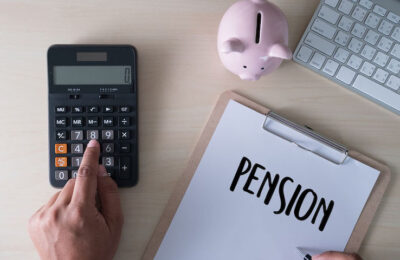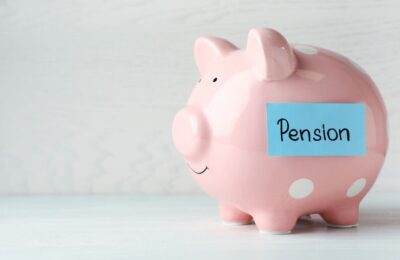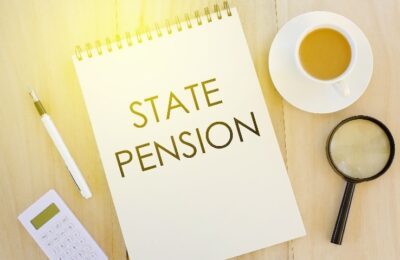Child benefit and state pensions
Child Benefit (CB) – or, as it’s sometimes known, ‘Family Allowance’ – used to be one of those benefits that all parents of children under 16 enjoyed.
Then, back in January 2013, the government decided to restrict the number of families who were eligible for the full amount.
By introducing something called the High Income Child Benefit Charge (HICBC), people earning over £50,000 had to pay a charge of 1% of their child benefit for every £100 of income they earned above that salary level. This threshold level was increased to £60,000 in April 2024 and if earnings exceed £80,000 then no child benefit is payable at all as if either parent earns £80,000 or over, the HICBC effectively wipes out their Child Benefit. If they claim it, they will have to pay it back.
On the face of it, this means that if you have children aged under 16 (or under 20 and in approved education or training), there’s no point claiming Child Benefit if either parent earns over £80,000.
Unfortunately, that can be a very costly mistake. If you are doing this, you could be putting your state pension at risk.
Why could I be putting my state pension at risk?
If you are to qualify for the full single-tier State Pension, you need to accrue 35 full years of National Insurance contributions.
If you’re employed and earn enough, you do this by paying the right weekly amount of Class 1 NI contributions. The self-employed do it by paying Class 2 contributions.
So far, so simple.
But you also need to remember that the system offers certain NI credits which can fill gaps in your National Insurance payment record and help you to properly accumulate enough qualifying years for your state pension.
In a nutshell, there are two types of NI credit.
Class 1 credits count towards both the state pension and certain benefits such as jobseeker’s allowance. Class 3 credits count only towards the State Pension.
If you want to send yourself half crazy, you can look up the various eligibility criteria for both Class 1 and Class 3 credits here.
If you want to know why claiming Child Benefit (and its associated Class 3 credits) are important for your State Pension, then carry on reading.
Why it’s important to claim Child Benefit
Imagine a family with a boy and a girl aged 10 and 7 respectively. One parent earns £85,000 per year while the other stays at home and cares for the children.
Because the working parent earns more than £80,000, if either parent claims Child Benefit they would have to pay it all back – thanks to the High-Income Child Benefit Charge. This is why many parents in the same or similar situations don’t bother to claim the benefit at all.
However, you need to remember that the parent who is staying at home (and not earning) will not be paying any National Insurance contributions. This can, in the long run, affect their entitlement to the full state pension.
If, on the other hand, the parent who stays at home does register for Child Benefit, they will automatically receive Class 3 NI credits as long as one child is under the age of 12. This effectively enables them to continue building up their state pension entitlement.
It’s the same story if one parent is working part-time but not earning enough to have to pay NI contributions. If they are registered for Child Benefit, those Class 3 credits will be counted towards their state pension.
Lots of parents have fallen foul of the High Income Child Benefit Charge and accidentally lost their Class 3 credits, with HMRC estimating that some 200,000 parents may have lost some or all of their state pension entitlement.
How do I avoid the trap?
Fortunately, protecting your state pension is relatively easy. To make sure that Class 3 credits are counted towards your state pension, you simply need to fill in HMRC’s Form CH2 and claim Child Benefit. There is a box on the form that one can tick where you can opt not to receive payments. By ticking this box you will avoid having to repay the Child Benefit later but will still receive the Class 3 credits you need to count towards your pension.
Unless you tick that box, if either parent earns over £80,000, you’ll have to pay the money back – but if the price of not claiming at all is a major hit to your pension, that’s surely a small price to pay!
Advice with THP Chartered Accountants
For more advice on state pensions and child benefit claims contact us here today at THP Chartered Accountants. We offer a range accountancy services including wealth management, wills and legacy planning and much more. Contact your local office today in Sutton, Chelmsford, Wanstead, and Saffron Walden or call us at our head office on 020 8989 5147.
About Karen Jones
Having worked for one of the world’s largest accountancy firms, Karen Jones uses her tax knowledge and skills to help clients obtain substantial reductions to their tax liabilities.
With an expanding portfolio of tax clients, Karen enjoys the variety her work brings her and particularly likes working with new businesses and people. With a growing number of tax clients, she frequently faces a variety of challenges and relishes the experience she gains as she solves them.
Karen likes the THP ethos: “I like the way the team has a professional, but friendly and down-to-earth approach – it creates a productive atmosphere that benefits everyone.”
Karen’s specialist skills:
- Personal Taxation
- Tax Efficient Planning
- Trust Administration












